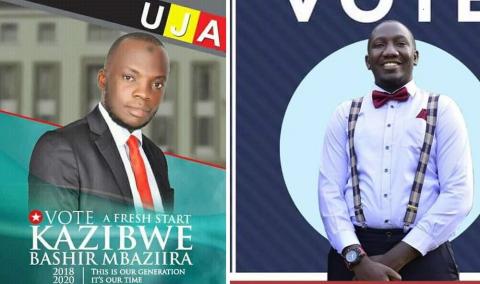UJA PRESIDENTIAL CONTENDERS DEBATE
Submitted by Anonymous on

A campaign to make journalists great again
The candidates contending for the presidency of the Uganda Journalists Association (UJA) have engaged in a public debate as the voting date draws nearer.
Hajji Kazibwe Bashir Mbaziira and Abubaker Luboowa spent part of Monday evening presenting their manifestos to the electorate ahead of this Saturday’s (8th September) election at Tick Hotel in Kawempe.
A one hour debate was organized by a local Television channel and hosted by a Fellow journalist Dunstan Busuulwa.
Mbaziira, a radio and Television personality promised to promote unity among practicing journalists in order to come out with a single voice in times of need. He pledged to engage with all stakeholders including the government in order to achieve the journalists’ cause.
On the other hand, Abubaker Luboowa, a veteran photo journalist with the Daily Monitor promised to stand against violence and torture of journalists who are always doing their jobs, citing the recent humiliating videos that captured the army officers battering journalists as they covered city protests against the incarceration of MP Robert Kyagulanyi aka Bobi Wine in a military barracks.
These elections come at a time when the electioneering processes for the past years have been marred with violence and alleged electoral rigging.
The winner will be replacing Robert Kagoro who has served together with his council for two years from 2016.
“The voters will be required to present their membership and media house Identity Cards to avoid double voting as it has been the case in the past elections,” said Kagoro.
Meanwhile, the position of the Vice presidency is contested by Isaac Katende aka Kasuku and Mathias Rukundu.
This umbrella body of Ugandan journalists was founded by Kintu Musoke, former Prime Minister and Charles Binaisa in 1963 to unite all practicing journalists, after borrowing an idea from then Ghanaian President Nkwame Nkrumah.
The association has however of recent faced criticism for not doing much to serve the interests of the journalists, promotion of personal interests of the leaders, and dividing journalists according to their media houses.
- Log in to post comments
- 1385 reads
